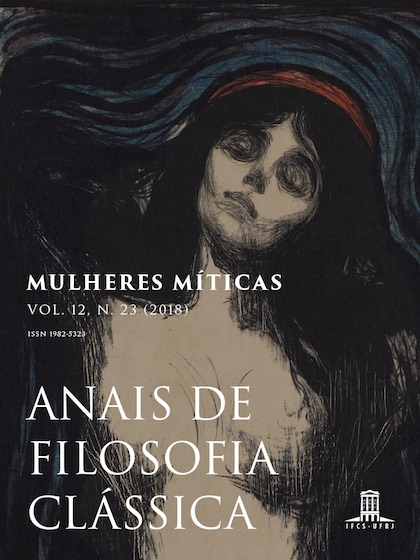Safo e a sintomatologia do amor
DOI:
https://doi.org/10.47661/afcl.v12i23.9448Palavras-chave:
Safo, Lírica grega, amor, gênero, tarduçãoResumo
Meu objetivo é propor um exercício de leitura do famoso fragmento 31 de Safo (séculos VII-VI a.C.), que traz uma das mais pungentes e belas expressões de um “eu” poético feminino na literatura ocidental. Tanto o ensaio quanto a tradução que fiz, e serve de base a ele, estão concentrados primordialmente nos aspectos literários do texto, na (re)construção de seu efeito e de sua mensagem.
Downloads
Referências
K. J. DOVER, A Homossexualidade na Grécia Antiga. Trad. Luís Krausz. São Paulo: Nova Alexandria, 1994.
LONGINO, Do Sublime. Trad. Filomena Hirata. São Paulo: Martins Fontes, 1996.
J. A. OLIVA NETO, O Livro de Catulo. São Paulo: Edusp, 1996
D. L. PAGE, Poetae Melici Graeci. Oxford: The Clarendon Press, 1962.
PLATÃO, Fedro. Trad. José Cavalcante de Souza. São Paulo: Editora 34, 2016.
G. RAGUSA, Safo de Lesbos: Hino a Afrodite e Outros Poemas. São Paulo: Hedra, 2011.


